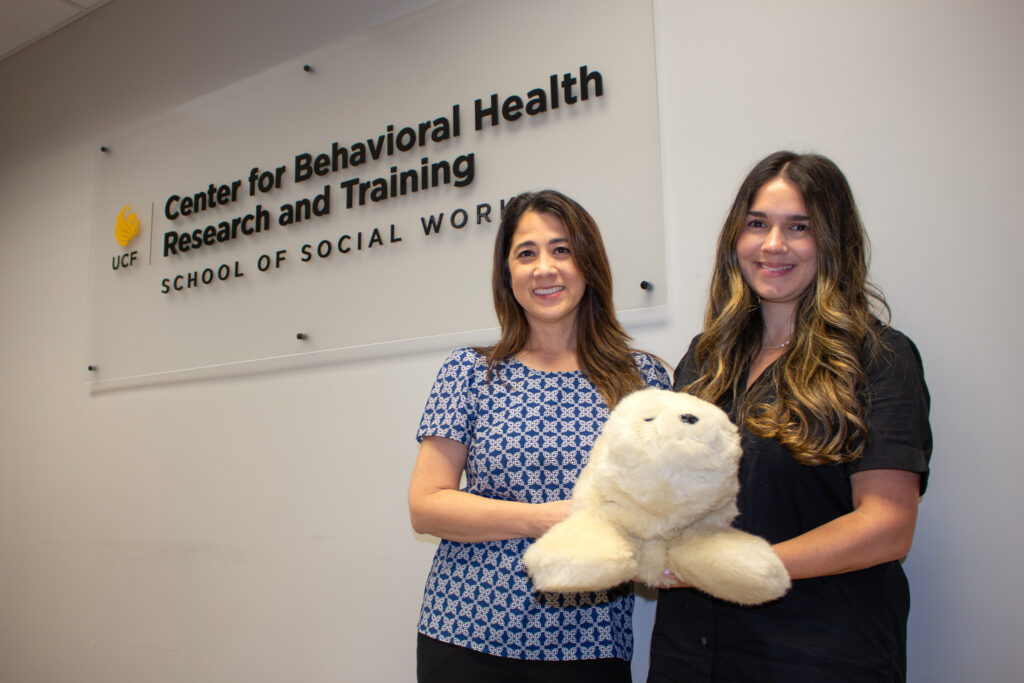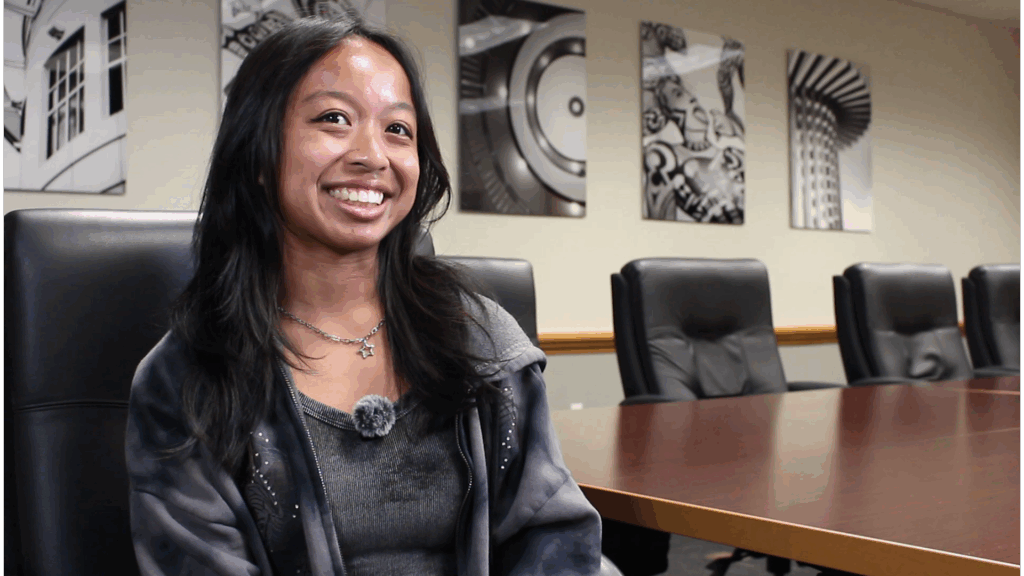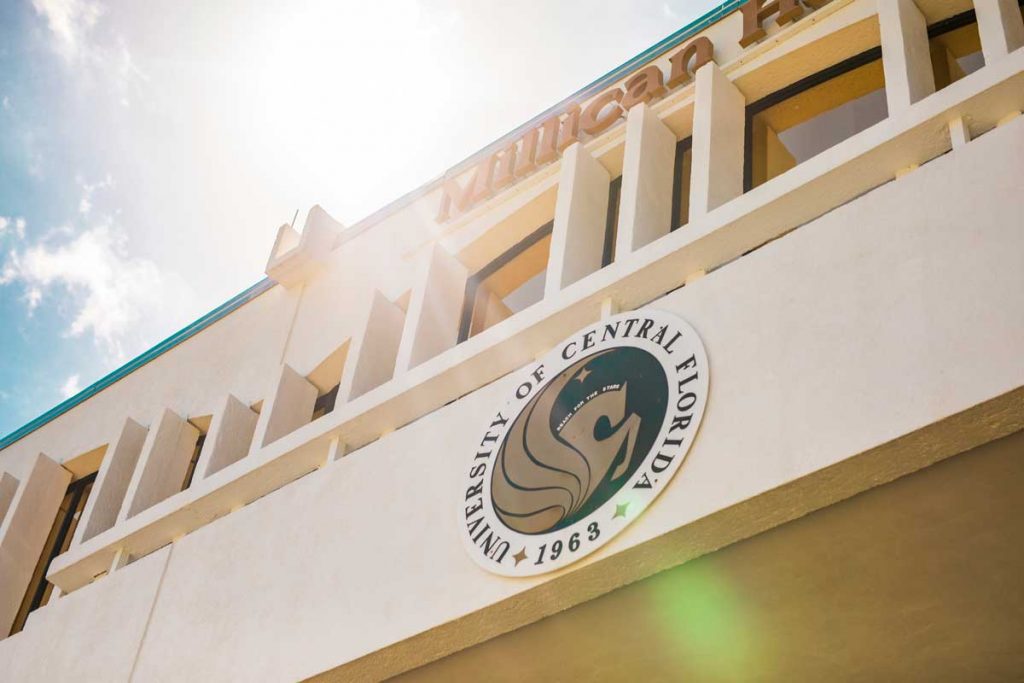Field education is the signature pedagogy and an important component of social work practice. It prepares UCF Social Work students to serve as clinical and generalist professionals in the real world with a valuable internship. After 12 years of service as the field education director, Jacquie Withers has transitioned her role into an associate instructor for our school. Our new field education director, Robin Pisano, is leading the charge to place students in internships that will further their career goals.
Empathetic & Tenacious Spirits
Under Withers’ direction, the field education program expanded its partnerships with professional and reputable agencies, giving students more options for their internship. “I am very proud of three major initiatives developed during my time as director of field education, including the Readmission Advocates Collaborating in Healthcare program with Orlando Health, the Outlook Clinic with Advent Health, and the Tending to All Greatness Team with Orange County Public Schools/Evans High School and ACE, where the focus has been to implement collaborative learning,” said Withers.
Pisano brings a wealth of knowledge and experience to build on that foundation. With a master’s in social work from State University of New York at Albany, she began her career working with the Incarcerated Youth Program in NYS where she facilitated policy change for reintegration laws. “Becoming a social worker is a calling and it takes a huge amount of empathy and compassion; coupled with a tenacious spirit. Teaching and advocating for social workers has always been a passion of mine and my primary focus during any of the positions I have held,” said Pisano.
Most recently, Pisano served as a lead social worker at a Central Florida hospice where she was also the field supervisor for UCF social work students. “I was extremely impressed with the caliber of students that I received from UCF, as well as with the faculty and staff who referred and supported them. I believe having this background will enable me to best support our students in the field,” said Pisano.
Setting up Field Education Internships
Through their coursework and their internships, social work students develop nine core competencies that assist them in preparing to work as social workers: 1) demonstrating ethical and professional behaviors, 2) engaging diversity and difference in practice, 3) advancing human rights and social, economic, and environmental justice, 4) engaging In practice-informed research and research-informed practice, 5) engaging in policy practice, 6) engaging with individuals, families, groups, organizations, and communities, 7) assessing individuals, families, groups, organizations, and communities, 8) intervening with individuals, families, groups, organizations, and communities, and 9) evaluating practice with individuals, families, groups, organizations, and communities.
Social workers work in a variety of settings that include hospitals, schools, mental health centers, justice system, hospices, etc. and as students learn and practice the knowledge, values, skills and behaviors inherent in the nine core competencies, sharpen their clinical expertise needed to provide individual, family and group counseling and case management services to their clients. “Our field education program is designed to be a community collaborative program, where students work closely with local agencies to meet community needs,” said Pisano.
Prior to field placements, students are interviewed by Pisano, and other field faculty, to determine field readiness, strengths and barriers, and student goals.
Like many social work students, alumna Crystal Tapia ‘18MSW was hired by the agency she completed her field internship at. “Growing up I thought I wanted to work as a school social worker and was happy to intern at a public school while in the BSW program. I thought I would continue that internship into the MSW program, but I was encouraged by the field coordinators to try something new and was placed at a local hospital instead. Once I was there, it exposed me to social work in a healthcare setting and upon completion I was offered a job. It was a priceless experience,” said Tapia.
Field Education in Each Program
The BSW program’s field education provides students the opportunity to apply social work theories and practices, as well as creates a foundation of understanding social workers’ role. The MSW (face to face and online programs) field education sharpens and refines those skills at an advanced level and prepares MSW clinical graduates for social work practice across various health, mental health and behavioral health settings.
Pisano is working with teams from each program that include, Instructors Heather Burroughs, Iradly Roche, Josette vonBirgelen, Shelley Hall, and Christine Ferretti. “It’s great utilizing the different skillset that each program instructor brings to the table. For instance, since our Online MSW field team is already familiar with helping students remotely, we were able to assist the BSW and MSW (traditional track) programs with placing students in their internships remotely to fulfill students’ graduation requirements towards the end of Spring 2020,” said Ferretti, who also serves as the Online MSW Field Coordinator.
Looking Forward
To comply with the national standards set by CSWE and with CDC precautionary measures, Pisano and her team have actively worked with field agencies to implement strategies that put students’ and clients’ safety first. To help those students providing telehealth and remote services to patients and clients, the school offered a webinar on telehealth considerations.
Along with the daily self-screening assessments students are required to take on the UCF mobile app, Iradly Roche and other field education faculty developed a required course that prepared students on how to protect themselves and others when returning to their internships. “The course explains how to maintain hygiene as clinicians in the field (i.e. wearing and using PPE) and also, discusses the pandemic and its implications/disparities among states, systems (such as prisons), and between diverse populations,” said Pisano.
Members of our communities are facing many challenges in our world today, which only heightens the importance of field education internships that best prepare our students to assist clients in overcoming and resolving these challenges.








